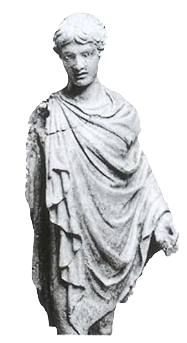
テクノロジーを道徳化する
Moralizing
techonology or Hocus-pocusing Philosophy of Technology

Pelagius, 354-ca.430
☆技術哲学とは、技術の本質とその社会的影響に焦点を当てる哲学の広範な分野である。 技術(あるいはそのギリシャ起源であるテクネー)に関連する問題についての哲学的議論は、西洋哲学の黎明期にまで遡る。[1] 「技術哲学」という語は、19世紀末にドイツ生まれの哲学者・地理学者エルンスト・カップによって初めて用いられた。彼は『技術哲学の基礎』(原題: Grundlinien einer Philosophie der Technik)と題する著作を発表している。[2][3][4]
| The philosophy of
technology is a broad sub-field of philosophy that focuses on the
nature of technology and its social effects. Philosophical discussion of questions relating to technology (or its Greek ancestor techne) dates back to the very dawn of Western philosophy.[1] The phrase "philosophy of technology" was first used in the late 19th century by German-born philosopher and geographer Ernst Kapp, who published a book titled Elements of a Philosophy of Technology (German title: Grundlinien einer Philosophie der Technik).[2][3][4] |
技術哲学とは、技術の本質とその社会的影響に焦点を当てる哲学の広範な
分野である。 技術(あるいはそのギリシャ起源であるテクネー)に関連する問題についての哲学的議論は、西洋哲学の黎明期にまで遡る。[1] 「技術哲学」という語は、19世紀末にドイツ生まれの哲学者・地理学者エルンスト・カップによって初めて用いられた。彼は『技術哲学の基礎』(原題: Grundlinien einer Philosophie der Technik)と題する著作を発表している。[2][3][4] |
| History Greek philosophy The western term 'technology' comes from the Greek term techne (τέχνη) (art, or craft knowledge) and philosophical views on technology can be traced to the very roots of Western philosophy. A common theme in the Greek view of techne is that it arises as an imitation of nature (for example, weaving developed out of watching spiders). Greek philosophers such as Heraclitus and Democritus endorsed this view.[1] In his Physics, Aristotle agreed that this imitation was often the case, but also argued that techne can go beyond nature and complete "what nature cannot bring to a finish."[5] Aristotle also argued that nature (physis) and techne are ontologically distinct because natural things have an inner principle of generation and motion, as well as an inner teleological final cause. While techne is shaped by an outside cause and an outside telos (goal or end) which shapes it.[6] Natural things strive for some end and reproduce themselves, while techne does not. In Plato's Timaeus, the world is depicted as being the work of a divine craftsman (Demiurge) who created the world in accordance with eternal forms as an artisan makes things using blueprints. Moreover, Plato argues in the Laws, that what a craftsman does is imitate this divine craftsman. |
歴史 ギリシャ哲学 西洋の「技術」という用語は、ギリシャ語のtechne(τέχνη)(芸術、あるいは工芸の知識)に由来する。技術に関する哲学的見解は、西洋哲学の根 源にまで遡ることができる。ギリシャのtechne観における共通のテーマは、それが自然の模倣として生じるという点だ(例えば、蜘蛛を観察することで織 物が発展した)。ヘラクレイトスやデモクリトスといったギリシャの哲学者たちはこの見解を支持した[1]。アリストテレスは『物理学』において、この模倣 がしばしば当てはまることに同意しつつも、テクネーは自然を超越し、「自然が完成させられないものを完成させる」可能性があると主張した。[5] アリストテレスはさらに、自然(フィシス)とテクネーは存在論的に異なるものだと論じた。自然物は生成と運動の内的な原理、そして内的な目的論的最終原因 を持つ。一方テクネーは、外部からの原因と外部からの目的(ゴールや終点)によって形作られるからだ。[6] 自然物は何らかの目的を目指して自らを複製するが、テクネーにはそれがない。プラトンの『ティマイオス』では、世界は神聖な職人(デミウルゴス)の作と描 かれる。デミウルゴスは永遠の理念に従って世界を創り出した。それは職人が設計図を用いて物を作るのと同じである。さらにプラトンは『法律篇』において、 職人の行為はこの神聖な職人を模倣するものであると論じている。 |
Middle ages to 19th century Sir Francis Bacon During the period of the Roman empire and late antiquity authors produced practical works such as Vitruvius' De Architectura (1st century BC) and Agricola's De Re Metallica (1556). Medieval Scholastic philosophy generally upheld the traditional view of technology as imitation of nature. During the Renaissance, Francis Bacon became one of the first modern authors to reflect on the impact of technology on society. In his utopian work New Atlantis (1627), Bacon put forth an optimistic worldview in which a fictional institution (Salomon's House) uses natural philosophy and technology to extend man's power over nature – for the betterment of society, through works which improve living conditions. The goal of this fictional foundation is "...the knowledge of causes, and secret motions of things; and the enlarging of the bounds of human empire, to the effecting of all things possible".[citation needed] |
中世から19世紀 サー・フランシス・ベーコン ローマ帝国と古代末期の時代には、ウィトルウィウスの『建築論』(紀元前1世紀)やアグリコラの『金属論』(1556年)といった実用書が著された。中世 のスコラ哲学は、技術とは自然の模倣であるという伝統的見解を概ね支持した。ルネサンス期、フランシス・ベーコンは技術が社会に与える影響を考察した最初 の近代的著作家の一人となった。彼のユートピア作品『新アトランティス』(1627年)では、架空の機関(ソロモンの家)が自然哲学と技術を用いて自然に 対する人間の支配力を拡大し、生活環境を改善する事業を通じて社会を向上させるという楽観的な世界観が提示されている。この架空の財団の目標は「…物事の 原因と秘められた動きの知識、そして人間の支配の境界を拡大し、あらゆる可能なことを実現すること」にある。[出典が必要] |
| 19th century The native German philosopher and geographer Ernst Kapp, who was based in Texas, published the fundamental book "Grundlinien einer Philosophie der Technik" in 1877.[3] Kapp was deeply inspired by the philosophy of Hegel and regarded technique as a projection of human organs. In the European context, Kapp is referred to as the founder of the philosophy of technology. Another, more materialistic position on technology which became very influential in the 20th-century philosophy of technology was centered on the ideas of Benjamin Franklin and Karl Marx.[citation needed] |
19世紀 ドイツ出身の哲学者であり地理学者でもあるエルンスト・カッフは、テキサスを拠点として活動し、1877年に基礎的な著作『技術哲学の基礎線』を出版した [3]。カッフはヘーゲルの哲学に深く影響を受け、技術を人間の器官の投影と見なした。ヨーロッパの文脈では、カッフは技術哲学の創始者と称される。 20世紀の技術哲学において非常に影響力を持った、より唯物論的な技術観は、ベンジャミン・フランクリンとカール・マルクスの思想を中心として展開され た。[出典が必要] |
| 20th century to present Five early and prominent 20th-century philosophers to directly address the effects of modern technology on humanity include John Dewey, Martin Heidegger, Herbert Marcuse, Günther Anders and Hannah Arendt. They all saw technology as central to modern life, although Heidegger, Anders,[7] Arendt[8] and Marcuse were more ambivalent and critical than Dewey. The problem for Heidegger was the hidden nature of technology's essence, Gestell or Enframing which posed for humans what he called its greatest danger and thus its greatest possibility. Heidegger's major work on technology is found in The Question Concerning Technology. Technological determinists such as Jaques Ellul have argued that modern technology constitutes a unified monolithic and deterministic force, and that the notion of technology being simply a tool is a serious error. Ellul views the modern technological world-system as being motivated by the needs of its own efficiency and power, not the welfare of the human race or the integrity of the biosphere.[9] While a number of important individual works were published in the second half of the twentieth century, Paul Durbin has identified two books published at the turn of the century as marking the development of the philosophy of technology as an academic subdiscipline with canonical texts.[10] Those were Technology and the Good Life (2000), edited by Eric Higgs, Andrew Light, and David Strong and American Philosophy of Technology (2001) by Hans Achterhuis. Several collected volumes with topics in philosophy of technology have come out over the past decade and the journals Techne: Research in Philosophy and Technology (the journal of the Society for Philosophy and Technology, published by the Philosophy Documentation Center) and Philosophy & Technology (Springer) publish exclusively works in philosophy of technology. Philosophers of technology reflect broadly and work in the area and include interest on diverse topics of geoengineering, internet data and privacy, our understandings of internet cats, technological function and epistemology of technology, computer ethics, biotechnology and its implications, transcendence in space, and technological ethics more broadly.[citation needed] Bernard Stiegler argued in his Technics and Time, as well as in his other works, that the question of technology has been repressed (in the sense of Freud) by the history of philosophy. Instead, Stiegler showed how the question of technology constitutes the fundamental question of philosophy. Stiegler shows, for example in Plato's Meno, that technology is that which makes anamnesis, namely the access to truth, possible. Stiegler's deconstruction of the history of philosophy through technology as the supplement opens a different path to understand the place of technology in philosophy than the established field of philosophy of technology. In the same vein, philosophers – such as Alexander Galloway, Eugene Thacker, and McKenzie Wark in their book Excommunication – argue that advances in and the pervasiveness of digital technologies transform the philosophy of technology into a new 'first philosophy'. Citing examples such as the analysis of writing and speech in Plato's dialogue The Phaedrus, Galloway et al. suggest that instead of considering technology as a secondary to ontology, technology be understood as prior to the very possibility of philosophy: "Does everything that exists, exist to me presented and represented, to be mediated and remediated, to be communicated and translated? There are mediative situations in which heresy, exile, or banishment carry the day, not repetition, communion, or integration. There are certain kinds of messages that state 'there will be no more messages'. Hence for every communication there is a correlative excommunication."[11]  There has been additional reflection focusing on the philosophy of engineering, as a sub-field within philosophy of technology. Ibo van de Poel and David E. Goldberg edited a volume, Philosophy and Engineering: An Emerging Agenda (2010) which contains a number of research articles focused on design, epistemology, ontology and ethics in engineering. |
20世紀から現在まで 20世紀初期に活躍した主要な哲学者で、現代技術が人類に与える影響を直接論じた人物には、ジョン・デューイ、マルティン・ハイデガー、ヘルベルト・マル クーゼ、ギュンター・アンデルス、ハンナ・アーレントがいる。彼らは皆、技術を現代生活の中心と見なしたが、ハイデガー、アンデルス[7]、アーレント [8]、マルクーゼはデューイよりも複雑な見解を持ち批判的だった。ハイデガーにとっての問題は、技術の本質であるゲステル(枠組み)の隠れた性質であっ た。これは人間にとって最大の危険であると同時に最大の可能性をもたらすと彼は述べた。ハイデガーの技術に関する主要な論考は『技術という問い』に見られ る。 ジャック・エルールのような技術決定論者は、現代技術が統一された単一的で決定論的な力であり、技術が単なる道具であるという考えは重大な誤りだと主張し た。エルールは現代の技術的世界システムが、人種の福祉や生物圏の健全性ではなく、自らの効率性と権力への欲求によって駆動されていると見なしている。 20世紀後半には数多くの重要な個別の著作が出版されたが、ポール・ダービンは世紀の変わり目に出版された二冊の書籍を、技術哲学が学術的サブ分野として 発展し規範的テキストを獲得した画期的な著作と位置付けている[10]。それらはエリック・ヒッグス、アンドリュー・ライト、デイヴィッド・ストロング編 『技術と良き生活』(2000年)とハンス・アハテルフイス著『アメリカ技術哲学』(2001年)である。過去10年間で技術哲学を主題とする複数の論文 集が刊行され、学術誌『テクネー:技術哲学研究』(技術哲学協会誌、哲学文献センター発行)と『哲学と技術』(シュプリンガー)は技術哲学分野の論文のみ を掲載している。技術哲学者は広範に考察し、この分野で活動している。その関心は、地球工学、インターネットデータとプライバシー、インターネット上の猫 に対する我々の理解、技術的機能と技術認識論、コンピュータ倫理、バイオテクノロジーとその含意、宇宙における超越、そしてより広義の技術倫理といった多 様なトピックに及んでいる。 ベルナール・スティグラーは『技術と時間』をはじめとする著作で、技術の問題が哲学史によって(フロイト的な意味で)抑圧されてきたと論じた。代わりにス ティグラーは、技術の問題こそが哲学の根本的問いであることを示した。例えばプラトンの『メノン』において、技術とはアナムネシス、すなわち真理へのアク セスを可能にするものであると論じている。技術という補完物を通じて哲学史を解体するシュティグラーの試みは、確立された技術哲学の領域とは異なる、技術 が哲学において占める位置を理解する新たな道を開く。同様に、アレクサンダー・ギャロウェイ、ユージン・サッカー、マッケンジー・ワークらが著書『破門』 で論じるように、デジタル技術の進歩と普及は技術哲学を新たな「第一哲学」へと変容させている。プラトンの対話篇『パイドロス』における書物と言語の分析 を例に挙げつつ、ガロウェイらは、技術を存在論の二次的なものとして考えるのではなく、哲学そのものの可能性に先立つものとして理解すべきだと示唆する。 「存在するものすべては、私に提示され、表象され、媒介され、再媒介され、伝達され、翻訳されるために存在するのか?異端や追放、排除が優勢となる媒介的 状況は存在する。反復や交わり、統合が支配するわけではない。『これ以上のメッセージは存在しない』と宣言する種のメッセージがある。ゆえにあらゆるコ ミュニケーションには相関的な破門が存在する」[11]  写真は岩波文庫のプラトン作「メノン」の表紙にあるが、この像がメノンという確証はない 技術哲学の一分野として、工学哲学に焦点を当てた追加的な考察も行われている。イボ・ファン・デ・ポールとデイヴィッド・E・ゴールドバーグが編集した 『哲学と工学:新たな課題』(2010年)には、工学における設計、認識論、存在論、倫理に焦点を当てた研究論文が多数収録されている。 |
| Technology and neutrality Technological determinism is the idea that "features of technology [determine] its use and the role of a progressive society was to adapt to [and benefit from] technological change."[12] The alternative perspective would be social determinism which looks upon society being at fault for the "development and deployment"[13] of technologies. Lelia Green used recent gun massacres such as the Port Arthur Massacre and the Dunblane Massacre to selectively show technological determinism and social determinism. According to Green, a technology can be thought of as a neutral entity only when the sociocultural context and issues circulating the specific technology are removed. It will be then visible to us that there lies a relationship of social groups and power provided through the possession of technologies. A compatibilist position between these two positions is the interactional stance on technology proposed by Batya Friedman that states that social forces and technology co-construct and co-vary with one another. |
技術と中立性 技術決定論とは、「技術の特徴がその使用を決定し、進歩的な社会の役割は技術的変化に適応し(そして利益を得る)ことである」という考え方だ[12]。こ れとは対照的な視点が社会決定論である。これは技術の「開発と展開」[13]に対する責任を社会に求める立場だ。レリア・グリーンはポートアーサー銃乱射 事件やダンブレーン銃乱射事件といった近年の銃乱射事件を例に、技術決定論と社会決定論を対比的に示した。グリーンによれば、技術は特定の技術を取り巻く 社会文化的文脈や問題が排除された場合にのみ、中立的な存在と見なせる。そうすることで、技術所有を通じて生じる社会集団と権力の関係性が明らかになるの だ。この二つの立場の中間にある互換主義的立場として、バティア・フリードマンが提唱する技術に対する相互作用的スタンスがある。これは社会的力と技術が 相互に構築し合い、共変する関係にあると主張するものである。 |
| Pharmakon | ファルマコン |
| 1.
Franssen, Maarten; Lokhorst, Gert-Jan; van de Poel, Ibo; Zalta, Edward
N., Ed. (Spring 2010). "Philosophy of Technology". The Stanford
Encyclopedia of Philosophy. Retrieved May 15, 2014. 2. Marquit, Erwin (1995). "Philosophy of Technology". Archived from the original on 15 October 2015. Retrieved 25 September 2015. Section 2, paragraph 10. Published in vol. 13 of the Encyclopedia of Applied Physics (entry "Technology, Philosophy of"), pp. 417–29. VCH Publishers, Weinheim, Germany, 1995. 3. * Ernst Kapp: Grundlinien einer Philosophie der Technik. Zur Entstehungsgeschichte der Cultur aus neuen Gesichtspunkten (Braunschweig/Brunswick 1877, Reprint Düsseldorf 1978, Engl. Translation Chicago 1978). 4. "Elements of a Philosophy of Technology". University of Minnesota Press. Retrieved 2022-04-09. 5. Aristotle, Physics II.8, 199a15 6. Aristotle, Physics II 7. # The Outdatedness of Human Beings 1. On the Soul in the Era of the Second Industrial Revolution. 1956 # The Outdatedness of Human Beings 2. On the Destruction of Life in the Era of the Third Industrial Revolution. 8. Hannah Arendt, The Human Condition, 1958. 9. "Technique". Discipleship & Ethics. Retrieved 2023-10-20. 10. Techné Vol 7 No 1 11. Excommunication: Three Inquiries in Media and Mediation, Alexander R. Galloway, Eugene Thacker, and McKenzie Wark (University of Chicago Press, 2013), p. 10. 12. Green, Lelia (2001). Technoculture. Crows Nest, Australia: Allen & Unwin. p. 2. 13. Green, Lelia (2001). Technoculture. Crows Nest, Australia: Allen & Unwin. p. 3. |
1. フランセン, マーテン; ロクホルスト, ゲルト=ヤン; ファン・デ・プール, イボ; ザルタ, エドワード N., 編 (2010年春). 「技術哲学」. 『スタンフォード哲学百科事典』. 2014年5月15日閲覧. 2. マーキット, アーウィン (1995). 「技術哲学」. 2015年10月15日時点のオリジナルからアーカイブ. 2015年9月25日閲覧. 第2節、第10段落. 『応用物理学百科事典』第13巻(「技術哲学」の項目)pp. 417–29 に掲載. VCH Publishers, ドイツ・ヴァインハイム, 1995. 3. * エルンスト・カップ:『技術哲学の基礎線。新たな視点から見た文化の発生史』(ブラウンシュヴァイク 1877年、再版 デュッセルドルフ 1978年、英訳 シカゴ 1978年)。 4. 「技術哲学の要素」。ミネソタ大学出版局。2022年4月9日取得。 5. アリストテレス『物理学』II.8, 199a15 6. アリストテレス『物理学』II 7. # 人間の時代遅れ性 1. 第二の産業革命時代の魂について。1956年 # 人間の時代遅れ性 2. 第三の産業革命時代の生命の破壊について。 8. ハナ・アーレント『人間の条件』1958年。 9. 「技術」. 『弟子と倫理』. 2023年10月20日閲覧. 10. 『テクネー』第7巻第1号 11. 『破門:メディアと媒介に関する三つの探究』, アレクサンダー・R・ギャロウェイ, ユージーン・サッカ, マッケンジー・ワーク (シカゴ大学出版局, 2013年), p. 10. 12. グリーン、レリア(2001)。『テクノカルチャー』。オーストラリア、クロウズ・ネスト:アレン&アンウィン。p. 2。 13. グリーン、レリア(2001)。『テクノカルチャー』。オーストラリア、クロウズ・ネスト:アレン&アンウィン。p. 3。 |
| https://en.wikipedia.org/wiki/Philosophy_of_technology |
★Peter-Paul Verbeek, 1970- の紹介:
"Verbeek's theory of technological mediation builds on the postphenomenological approach that was firstly stipulated by Don Ihde. This approach finds its origins in a synthesis between classical phenomenology and American pragmatism, with as one of its major premises the thesis that "technology only bears meaning in a use context".[5] From a critique of classical philosophy of technology, in which Verbeek explicitly elaborates on the existentialist philosophy of Karl Jaspers and the hermeneutic philosophy of technology of Martin Heidegger./ Verbeek presents as the purpose of his theory of technological mediation to systematically analyzing the influence of technology on human behavior in terms of the role technology plays in human-world relations.[6] In his original theory, a number of different human-technology-world relations are stipulated (the first four based on the philosophy of Donald Idhe):[7][8]"- Peter-Paul Verbeek.
フェルベークの技術的媒介の理論は、ドン・イーデによって最初に規定されたポスト現象学的ア
プローチを基礎としている。このアプローチは、古典的現象学とアメリカ的プラグマティズムの統合にその起源を見いだし、その主要な前提のひとつとして、
「技術は使用文脈においてのみ意味を持つ」というテーゼを掲げている。古典的な技術哲学への批判から、フェルベークはカール・ヤスパースの実存主義哲学と
マルティン・ハイデガーの解釈学的技術哲学を明示的に精緻化した/フェルベークは、人間-世界関係において技術が果たす役割という観点から、技術が人間の
行動に及ぼす影響を体系的に分析することを技術媒介論の目的として提示する。彼の独創的な理論では、いくつかの異なる人間-技術-世界の関係が規定されて
いる(最初の4つはドナルド・イドの哲学に基づく):
本文……
第1章 媒介された道徳
第2章 ヒューマニズム的でない技術倫理
第3章 人工物は道徳性を持つか
第4章 技術と道徳的主体
第5章 設計における道徳
第6章 道徳的環境―具体的応用事例
第7章 媒介を超えた道徳
第8章 結論―技術に同行する
+++
リンク
文献
その他の情報
Copyleft,
CC, Mitzub'ixi Quq Chi'j, 1996-2099